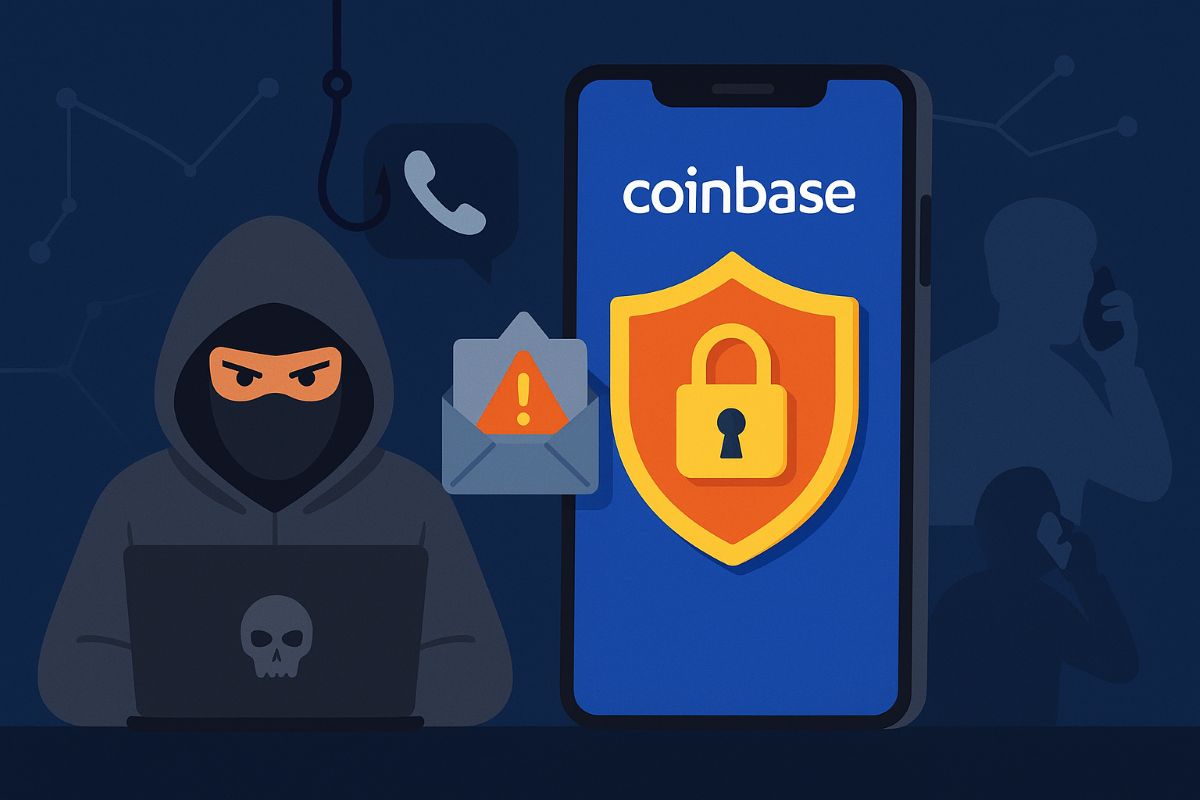Coinbase Targeted by Hackers in New Attack: Try Best Wallet to Protect Your Funds
A recent viral story shared by TikTok user Steve shows a new level of sophistication in phishing scams. Gone are the days of poorly written emails filled with grammatical and logical errors. Now, scammers have figured out how to...

A recent viral story shared by TikTok user Steve shows a new level of sophistication in phishing scams.
Gone are the days of poorly written emails filled with grammatical and logical errors. Now, scammers have figured out how to mimic real customer support email addresses – in this case, from Coinbase itself.
Voice Phishing – ‘Vishing’ Latest Scam Tool
The scam follows a consistent pattern. The victim receives an automated voicemail from a U.S. phone number claiming to be Coinbase, warning of suspicious account activity.
Then, the scammer makes a live follow-up call from a supposed Coinbase support team member, stating there has been an unauthorized attempt to change the victim’s email and phone number.
The scam unfolds quite simply—while attempting to ‘stop’ the supposed unauthorized attempt, the scammers gradually build the victim’s trust and collect information.
Eventually, often after multiple calls from different numbers and various ways of ‘confirming’ the scammers were legitimate, the phishing attempt reaches its peak, and the victim is asked for their wallet keyphrase.
TikTok user Steve remained suspicious and recognized that asking for a seed phrase is the one inviolable law of crypto: ‘not your keys, not your crypto.’ Give up that seed phrase, and you no longer control your digital assets.
But the mix of fear and urgency – stop the threat now! – can compel people to reveal information they would never share otherwise.
Phishing Attempts Build Off Leaked Data
Trust is built on information, and during interactions, scammers often refer to key personal data. They used his real name and email address obtained through leaked data to appear legitimate.
Coinbase experienced several significant data breaches in the past, including a major leak of private information in May. The company estimates that social engineering scams cost them over $300 million annually. It also disclosed that personal data from as many as 97,000 users was exposed through bribed or compromised call center staff.

Coinbase branding is also a key part of the scheme, with scammers using websites and emails that closely resemble the real ones. Fraudsters reportedly deceive users through cloned emails, spoofed caller IDs, PBX systems, and even pre-generated seed phrases.
Private Keys, Non-Custodial Wallets Key to Defeating Phishing Scams
In the end, never divulge your key phrase. And along with that, use a non-custodial wallet.
Savvy crypto investors can protect themselves from most attacks by personally keeping your keys and not depending on a third party.
Using a wallet with the most recent crypto security features is also important. Luckily, Best Wallet app offers MPC and biometric security – and is fully non-custodial.
Best Wallet Token ($BEST) – Advanced Security Meets Web3 Utility
Best Wallet Token ($BEST) offers the best of both worlds – a no-KYC, non-custodial web3 wallet combined with the latest in crypto security measures.
And the $BEST token enhances the wallet’s core functions. Beyond swaps, multiple wallets, and a growing list of supported chains and tokens, users also benefit from lower transaction fees, higher staking rewards, and early access to the best new crypto projects.

Web3 wallets like Best Wallet are increasingly more than just places to store your digital assets; they serve as gateways to the emerging crypto economy. That’s certainly true with Best Wallet, which plans to introduce a Best Card to complement the wallet and token.
The $BEST presale has already raised over $14M; with tokens priced at $0.025405 (and our price prediction showing a possible increase to $0.05106175), there’s never been a better time to get in on the project, so check out how to buy $BEST.
Visit the Best Wallet Token presale to learn more about the project.
$BEST, Best Practices Key To Defeating Phishing Attempts
Ultimately, most scammers seek quick wins; victims who lack knowledge and willingly give up their information.
Keep your keys to yourself and always use a non-custodial wallet.
As always, we’d like to stress the importance of doing your own research. This isn’t financial advice.

 Lynk
Lynk 
































